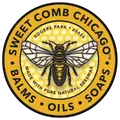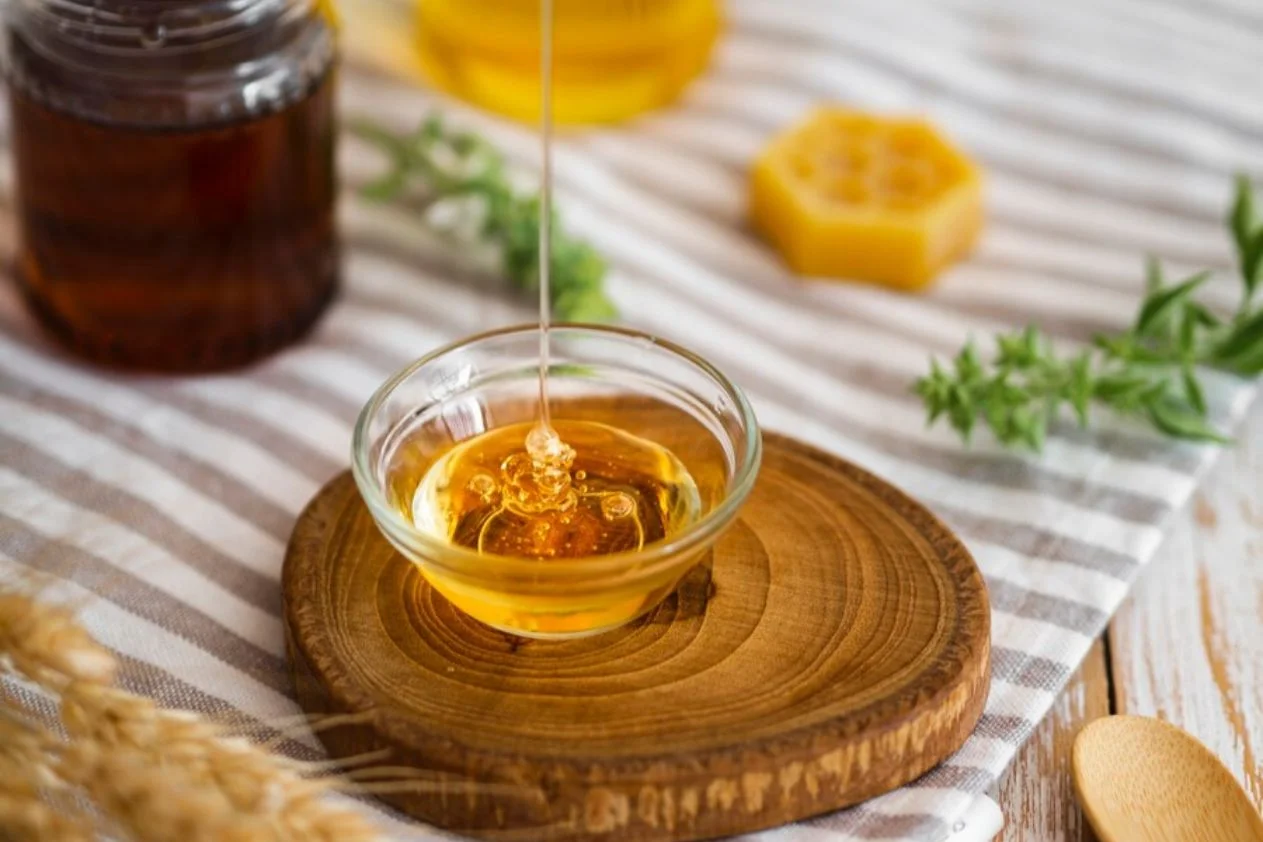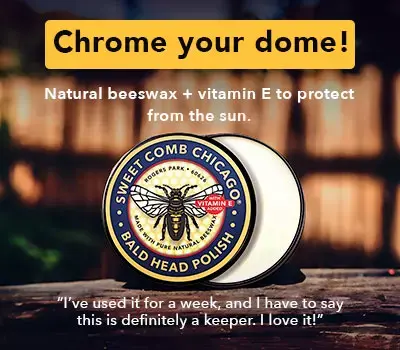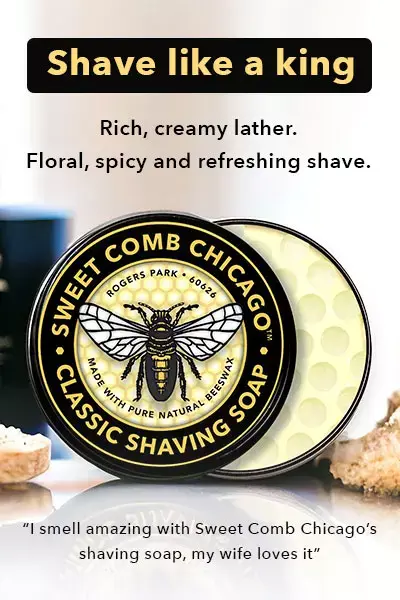Honey and beeswax stand out as two of nature’s most versatile ingredients. Understanding what sets them apart helps you make informed choices in your journey toward natural and sustainable products.
Skin and hair care industries rely heavily on these bee-derived substances. Let’s delve into their origins, benefits, and how they contribute to high-quality, eco-friendly products like those from Sweet Comb Chicago.
What is Beeswax? Origins and Benefits
There are some common myths, such as “Is beeswax bee poop?” and “Is beeswax edible?”.
Many persons will be astonished when told that beeswax is not bees’ feces but rather a very valued secretion due to the hard job of these minute creatures.
Beeswax is one of nature’s weird secretes, produced by worker honeybees through glands in their abdomen. This gives shape to the honeycomb in which honey is stored.
Beeswax, compared to many other natural-derived products, has a relative versatility: applications ranging from candles to cosmetics. It provides properties of water resistance and acts as a barrier agent against skin damage. Besides that, it is a non-toxic ingredient. For those wondering where can I buy beeswax, it is easily avaiable in our online store.
Understanding the difference between beeswax and honey becomes especially important when selecting the right products for skincare. While they originate from the same hive, their textures, compositions, and effects on the skin vary significantly.

Benefits of Beeswax for Skin and Hair
Beeswax is renowned for its protective and moisturizing properties. For the skin, it acts as a humectant, drawing moisture into the skin and sealing it to prevent loss, which is particularly beneficial in dry climates.
For example, beewaax products for men like Sweet Comb Chicago’s Mustache and Beard Styling Wax illustrate the beeswax’s ability to provide a strong hold while nourishing the skin underneath.
Hair care, too, benefits from beeswax. It’s excellent for styling due to its pliability and stronghold. Sweet Comb Chicago’s Bee Slick Hair Pomade leverages beeswax to tame flyaways and add a natural shine to hair without the use of synthetic chemicals.
Is Beeswax Safe for Babies?
One question is always whether beeswax is gentle enough for even the most sensitive skin, like that of babies. Yes, it is. That is because beeswax is naturally non-irritating. Sweet Comb Chicago’s Beeswax Lip Balm is non-aggressive, yet very potent on fragile skin against harsh environmental elements; hence, it is highly suitable even for the smallest users.
Honey More Than Just a Sweet Treat
Honey is something more than just a delicious sweetener—it is a nutrient-rich powerhouse. But how do bees make honey? Worker bees collect nectar from flowers, which is reduced to simple sugars and then stored in the honeycombs. In comes the evaporation when the bees fan their wings, turning this liquid into that thick, golden substance we all so love.
The benefits of honey keep on coming even beyond the kitchen. Honey is full of antioxidants, and because of its natural antimicrobial properties, it has many uses in natural products.
Knowing the difference between beeswax and honey can guide consumers who are seeking targeted benefits: whether you’re looking for moisture retention or skin-cleansing properties, selecting the right ingredient matters.

The Many Uses of Honey for Skin
Speaking of which, it would now be appropriate to bring up how honey tends to shine in the fields of moisturizing and soothing the skin. Sweet Comb Chicago’s African Black Shave Soap soothes under the skin and hydrates during and after shaving for a smooth irritation-free experience.
Another fabulous example of this is the Bee Clean Body Bar: this lets honey take center stage with its natural cleansing properties, leaving skin feeling refreshed and nourished.
Beeswax vs Honey Which is Better for Skin and Hair?
While both can provide large benefits to skin and hair, the main difference between beeswax and honey is that they serve different purposes and are for that reason complementary, not competitive.
Beeswax vs Honey for Skin and Hair
In skin care, beeswax is ideal in products requiring a barrier to retain moisture, such as bald head polish kit, which protects and nourishes sensitive skin.
Honey, on the other hand, hydrates and disinfects and finds a perfect application in varieties such as African Black Shave Soap, providing great moisturizing and cleaning qualities.
Beeswax is used more in hair styling products, and honey nourishes and moisturizes hair without weighing it down.
Frequently Asked Questions About difference between Beeswax and Honey
- Beeswax vs Honeycomb: Beeswax is a structural element of honeycomb, while honeycomb comprises both beeswax and honey contained therein. Each of them has very specific applications—the wax often finds its use in candles and cosmetic products, while honeycomb is generally consumed in its whole form as a natural rejoicing delicacy.
- How is Honey Made?: Reiterating, bees collect nectar and change the consistency thereof into honey and store it in honeycombs. Evaporation brought about by the fanning of the wings thickens the honey.
- Beeswax vs. Honey for Skin: While beeswax provides a barrier to lock moisture in, making it perfect for dry or sensitive skin, honey tops in hydration and cleansing with its antimicrobial properties.
- Honey Wax: Honey Wax is a mixture of beeswax and honey in the cosmetic skincare line, as certain unique benefits of honey blend with the protective characteristics for better moisturizing.

Conclusion
In a nutshell, beeswax and honey are two very special ingredients with distinct benefits. From cosmetics and hair products to household items, their natural benefits enrich our lives in many ways.
Be it the eco-friendly consumer, the beekeeper, or the health enthusiast, knowing the difference between beeswax and honey and uses for these substances derived from bees will make your awareness and selection more valued.
Sweet Comb Chicago features its thoughtful use of beeswax and honey across its range of goods, ensuring quality and sustainability in each product. Anyone interested in learning more about such development should look out for ways to enhance his or her green lifestyle with various items like the Mustache and Beard Styling Wax or the African Black Shave Soap, from our natural men’s grooming products.
.
One way to do this is to cater not only to personal well-being but also contribute toward a healthier environment.




